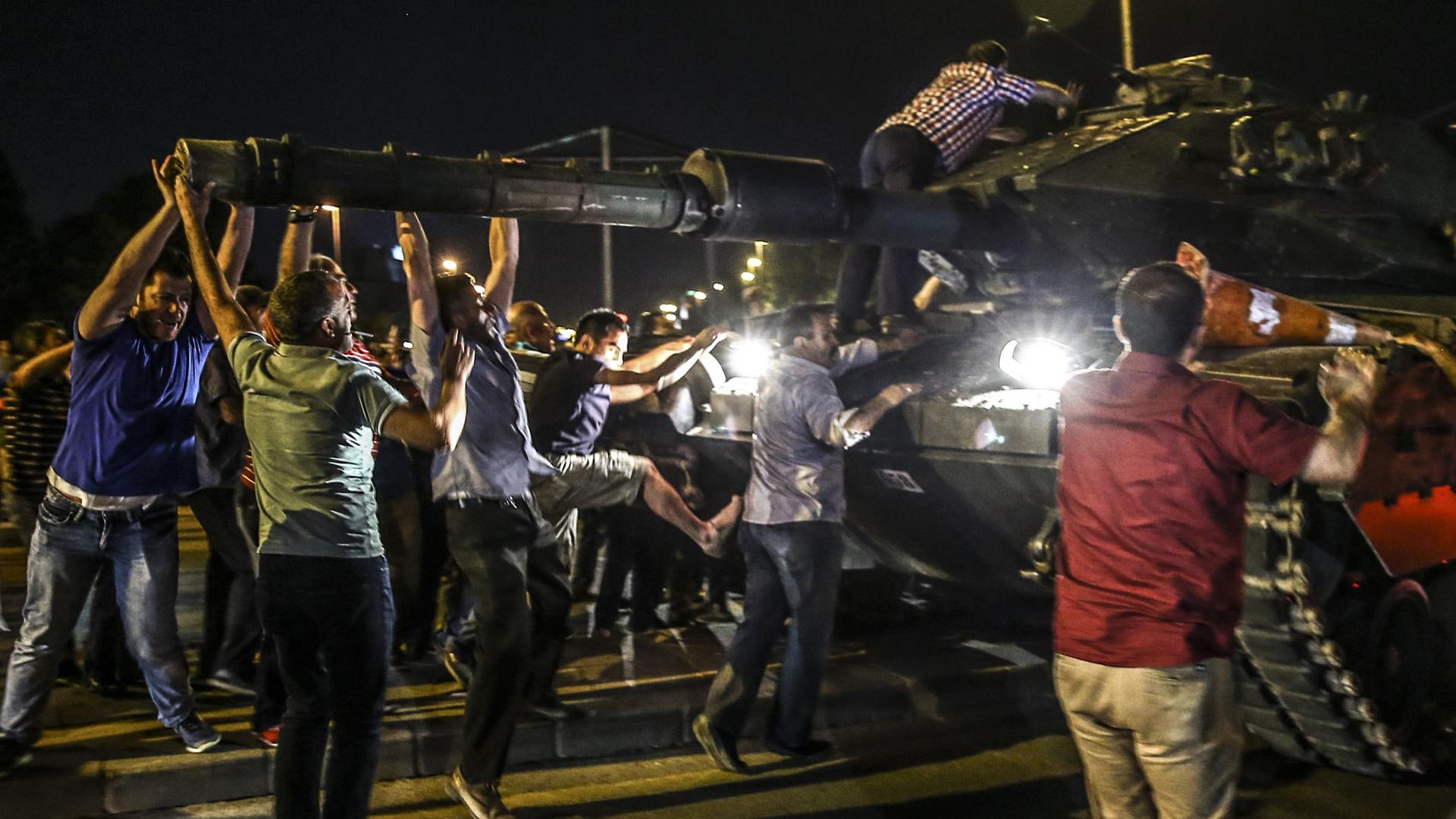On July 15, Turkey marks a crucial day, commemorating a time when people from all walks of life defeated a coup attempt in 2016, permanently changing the country’s coup-ridden history.
A rogue section of the Turkish army associated with the Fetullah Terror Organisation (FETO) led a bloody putsch, killing more than 250 people and wounding thousands on the night of July 15.
Despite losses, experts from different fields believe the people’s sacrifice eliminates any possible future military intervention.
“After this point I don’t believe such a thing [another coup] will happen because of what we have been through –– before July 15, after July 15 and now with the latest changes in the constitution –– those who were involved were put on trial,” said Hanefi Avci, a former top Turkish police chief, who extensively reported on the infiltration efforts of FETO members into the state institutions and wrote a popular book about their activities.
Unlike previous coups, the July 15 putsch plotters have been put on trial. For 63-year-old Avci, who had stayed in public service for decades, the coup plotters facing an immediate court trial has been a significant achievement for the Turkish state.
“For example, the people involved in the September 12 1980 coup were taken to court 15 years later. And the people involved in the events of February 28 [the 1997 Turkish military memorandum] were tried much later,” Avci told TRT World.
“After seeing the [trial] process, I don’t believe anyone in Turkey will attempt such a thing [again],” Avci concluded.
Legal experts echoed a similar view.
A new thing: Trying coup plotters
Cavit Tatli, an experienced lawyer, who leads the Lawyers’ Association (Hukukcular Dernegi), the oldest and largest lawyers association in Turkey, is one of them. Tatli has followed the July 15 trials very closely, developing an understanding that goes much deeper than that of many other experts.
“We are facing a coup in a legal framework for the first time in Turkish history. We didn’t have such a chance before,” Tatli told TRT World.
“In previous coups, the coup instigators also oversaw the trials. In this aspect, it is something new for us. It is very important for Turkey that they [the coup instigators] be tried,” Tatli said.
Unlike July 15, after the 1960 military coup, the army not only overthrew the democratically-elected government but also tried Prime Minister Adnan Menderes, Finance Minister Hasan Polatkan, Foreign Minister Fatin Rustu Zorlu and other politicians in a military court, shunning all aspects of the rule of law.
At the end of the 1960 trials, Menderes, Polatkan and Zorlu were sentenced to death and hanged in 1961.
After the 1980 military coup, Turkey had also seen its democratically-elected political leaders tried in special courts, which had been heavily influenced by generals.
But with July 15, the situation appears to have changed in a permanent fashion.
“These trials are very important because they show people who may be thinking of staging a coup in the future that they too will be tried and penalised,” Tatli commented.
More than 2,000 military officers, including generals and privates, have been punished with different sentences and 1,624 military personnel were given life sentences at the end of the trials.
The July 15 trials have also marked a new legal period, in which coup plotters have been tried without violating their defence rights, according to Tatli.
“Even if they have instigated a coup I find it very important that they were tried within the confines of the law, that their rights were preserved. That’s one. And secondly, if some [were to be] sentenced after these hearings, and some [actually] are, that is also very important. Why is that? Because it will prevent those who may attempt to do such things [stage a coup],” Tatli said.
Breakpoint for Turkey
More than anything else, the defeated coup also symbolises a lot things for Turkish history, for common Turks and powerful elites. During past coups, the Turks had usually been in a pacifist mood, preferring not to defy military interventions.
But on July 15, that national attitude had considerably changed as hundreds of thousands of people went out on to the streets to show their opposition to the coup attempt.
Avni Ozgurel, a prominent Turkish political analyst, thinks that Erdogan’s leadership is the main reason for the nation’s defiance on the fateful night.
“Erdogan decided to come to Istanbul against all odds. This includes himself, his family, his [adult] children, his grandchildren. They all say within a day that they are coming to Istanbul,” Ozgurel told TRT World.
Erdogan went even further, calling people to take to the streets on live television.
“These are unheard of in Turkish history. No. Including Ottoman history, there is no coup that the people have resisted [before this one]. At all. So that’s why this is a first,” Ozgurel said.
“They [the coup plotters] have never even remotely considered that they would meet such resistance.”
Weeding out FETO members
Another crucial change the July 15 defeated coup brought to Turkish life is the removal of FETO loyalists from the Turkish state structure in profound ways.
“With July 15 [coup attempt], many things have changed for Turkey, including the area of [religious exploitation]. Of course what is the most important change brought by July 15 is the removal of this [terrorist] group that has infiltrated the state throughout the years,” Avci, the former top police chief, observed.
“A long process has begun in which they will be picked through, exposed, and punished if involved in crime. This process has come a long way. Yes, there have been some mistakes made, some illegalities pursued,” Avci said.
“Despite this, this organisation has mostly been purged from the state. But more importantly, this group has lost its legitimacy in the eyes of the Turkish public, the Turkish people.”










Discussion about this post